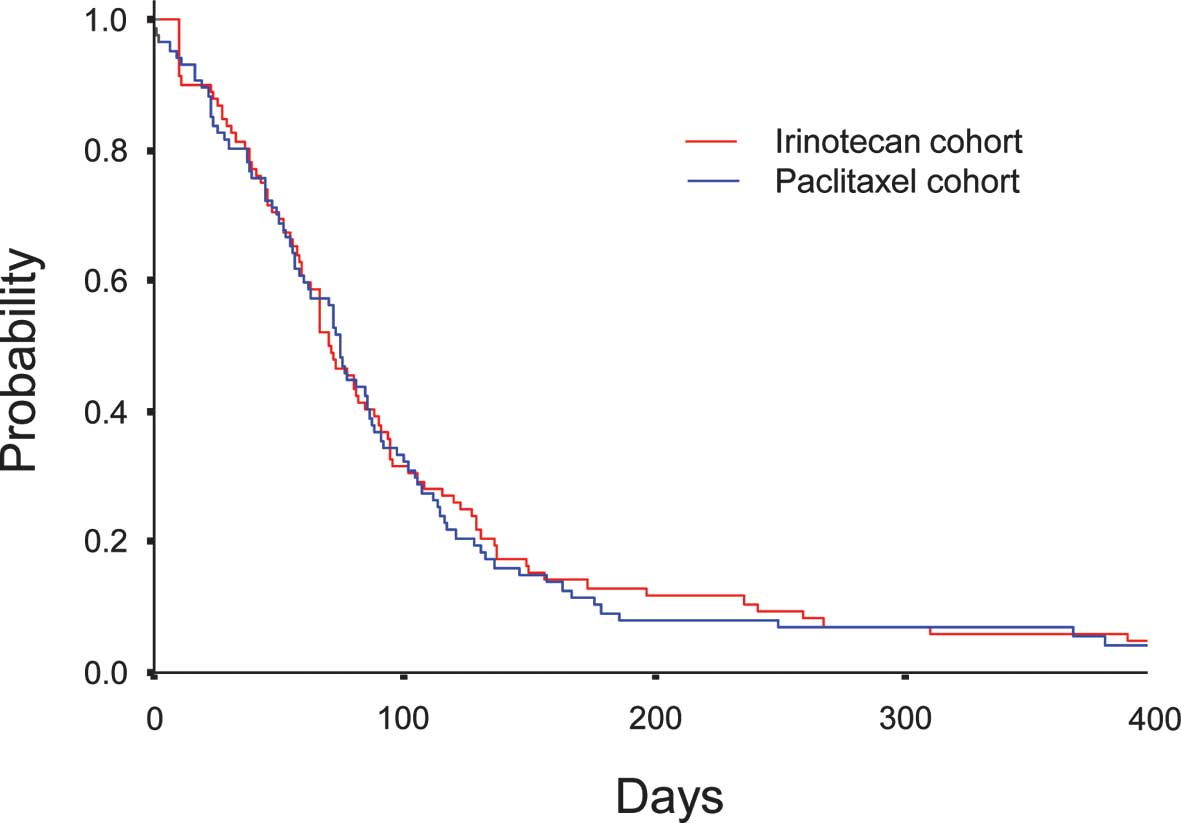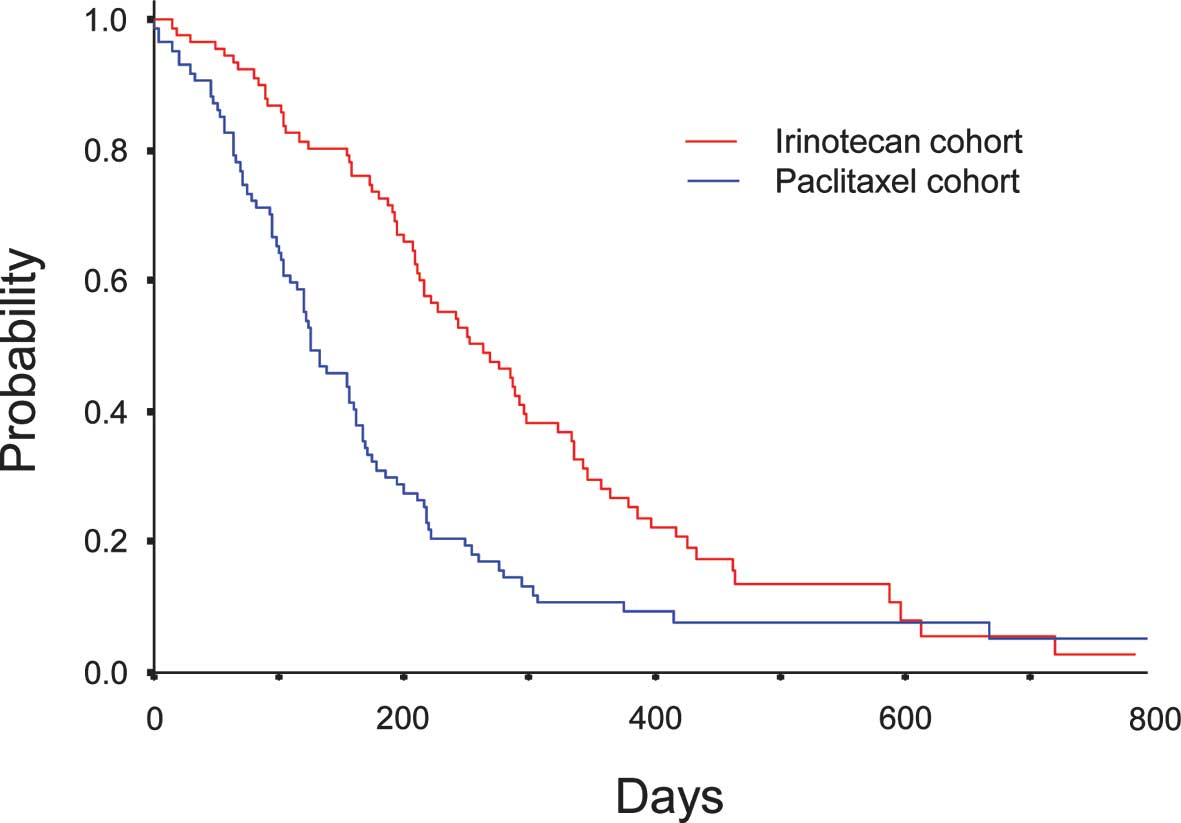Spandidos Publications style
Oba M, Chin K, Kawazoe Y, Takagi K, Ogura M, Shinozaki E, Suenaga M, Matsusaka S, Mizunuma N, Hatake K, Hatake K, et al: Availability of irinotecan in a second-line setting confers survival benefit to patients with advanced gastric cancer refractory to fluoropyrimidine-based regimens. Oncol Lett 2: 247-251, 2011.
APA
Oba, M., Chin, K., Kawazoe, Y., Takagi, K., Ogura, M., Shinozaki, E. ... Hatake, K. (2011). Availability of irinotecan in a second-line setting confers survival benefit to patients with advanced gastric cancer refractory to fluoropyrimidine-based regimens. Oncology Letters, 2, 247-251. https://doi.org/10.3892/ol.2011.241
MLA
Oba, M., Chin, K., Kawazoe, Y., Takagi, K., Ogura, M., Shinozaki, E., Suenaga, M., Matsusaka, S., Mizunuma, N., Hatake, K."Availability of irinotecan in a second-line setting confers survival benefit to patients with advanced gastric cancer refractory to fluoropyrimidine-based regimens". Oncology Letters 2.2 (2011): 247-251.
Chicago
Oba, M., Chin, K., Kawazoe, Y., Takagi, K., Ogura, M., Shinozaki, E., Suenaga, M., Matsusaka, S., Mizunuma, N., Hatake, K."Availability of irinotecan in a second-line setting confers survival benefit to patients with advanced gastric cancer refractory to fluoropyrimidine-based regimens". Oncology Letters 2, no. 2 (2011): 247-251. https://doi.org/10.3892/ol.2011.241
















